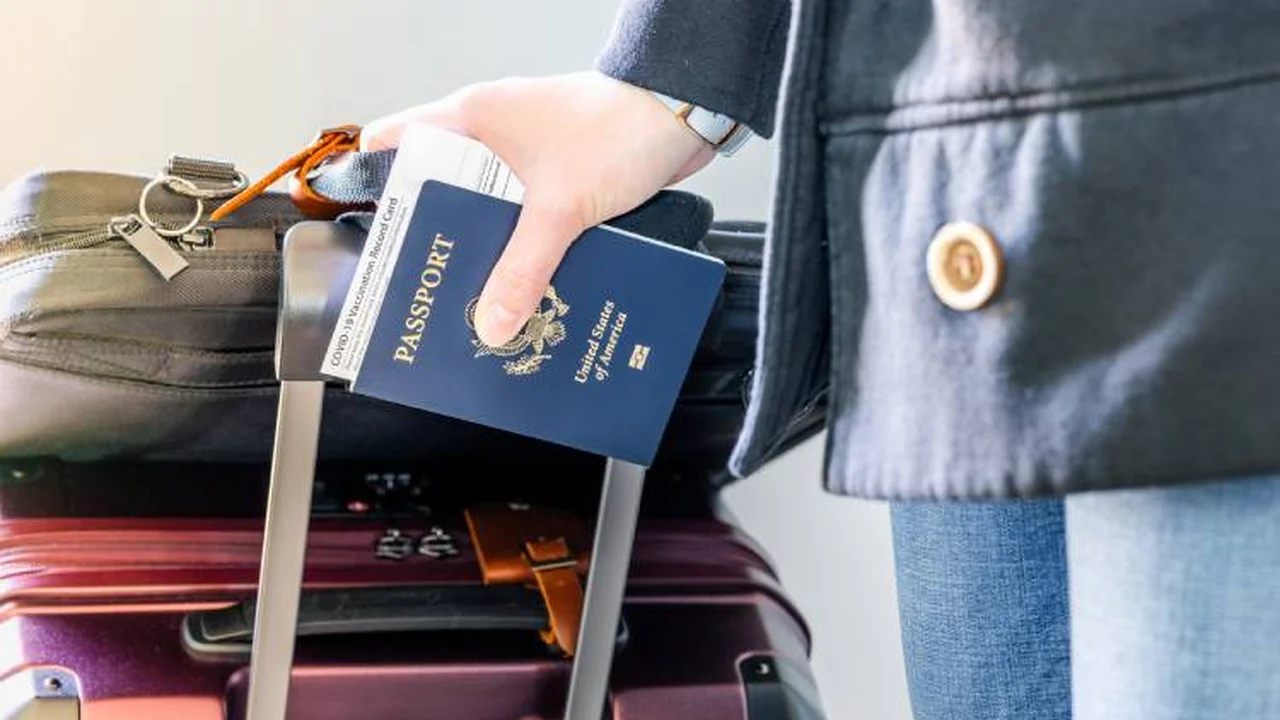Is Canada Right for You? A Guide for American Expats

Is Canada Right for You A Guide for American Expats Considering a move to Canada? This guide for American expats covers everything you need to know. Explore job opportunities, healthcare, and the Canadian lifestyle. Find out if Canada is the right fit for you.
Why Consider Canada as an American Expat Destination Job Market and Opportunities
So, you're thinking about packing your bags and heading north? Canada's been looking pretty appealing lately, huh? Well, you're not alone! Lots of Americans are considering the move, and for good reason. Let's break down why Canada might just be the perfect place for your next chapter, especially when it comes to your career.
First off, the job market. Canada's economy is pretty stable, and there's a growing demand for skilled workers in various sectors. Think tech, healthcare, engineering, and even trades. If you've got experience in these fields, you're already a step ahead. Plus, the Canadian government has programs specifically designed to attract skilled immigrants, which can make the whole process a little smoother.
But it's not just about finding *a* job, it's about finding the *right* job. Canada offers a good work-life balance, which is a big draw for many Americans. Vacation time is generally more generous, and there's a greater emphasis on employee well-being. Imagine actually using all your vacation days without feeling guilty! Sounds nice, right?
Now, let's talk specifics. Some of the hottest job markets right now are in cities like Toronto, Vancouver, and Calgary. Toronto is a major financial hub with tons of opportunities in banking, finance, and tech. Vancouver is a growing tech hub, with a thriving startup scene. And Calgary is the heart of Canada's oil and gas industry, but it's also diversifying into other sectors.
To get a better sense of the specific opportunities available, check out websites like Indeed.ca, LinkedIn, and Job Bank Canada (the official government job board). These sites will give you a good idea of the types of jobs that are in demand and the salaries you can expect.
Understanding the Canadian Healthcare System A Comprehensive Overview for American Expats
One of the biggest differences between the US and Canada is healthcare. Canada has a universal healthcare system, which means that basic medical services are free at the point of use. This is funded through taxes, so you won't have to worry about huge medical bills if you get sick or injured.
However, it's important to understand how the system works. You'll need to apply for a provincial health card as soon as you arrive in Canada. Each province has its own healthcare system, so the process may vary slightly depending on where you live. Once you have your health card, you'll be covered for most medical services, including doctor visits, hospital stays, and some diagnostic tests.
Keep in mind that there can be waiting lists for certain procedures, especially specialist appointments. This is one of the biggest criticisms of the Canadian healthcare system. However, the wait times are generally shorter for urgent medical needs.
Also, not everything is covered under the public healthcare system. Dental care, vision care, and prescription drugs are often not covered, or only partially covered. You may need to purchase private health insurance to cover these expenses. Many employers offer health benefits packages that include dental, vision, and drug coverage.
To learn more about the specific healthcare system in your province, check out the website of your provincial Ministry of Health. These websites provide detailed information about coverage, eligibility, and how to access healthcare services.
Navigating the Canadian Lifestyle and Culture What American Expats Need to Know
Moving to a new country isn't just about finding a job and healthcare, it's also about adapting to a new lifestyle and culture. Canada is generally considered to be a very welcoming and multicultural country. You'll find people from all over the world living in Canada, which makes it a very diverse and vibrant place to live.
However, there are some cultural differences between the US and Canada that you should be aware of. Canadians tend to be more polite and reserved than Americans. They also tend to be more socially conscious and environmentally aware. Things like recycling and reducing your carbon footprint are generally taken more seriously in Canada.
Another difference is the emphasis on community. Canadians tend to be more involved in their local communities, whether it's volunteering, joining a sports team, or attending local events. This can be a great way to meet new people and feel more connected to your new home.
When it comes to social etiquette, there are a few things to keep in mind. Canadians are generally very punctual, so it's important to be on time for appointments and meetings. They also tend to be more formal than Americans, so it's a good idea to dress appropriately for different occasions.
One of the biggest adjustments for many Americans is the weather. Canada can get very cold in the winter, especially in the northern regions. Make sure you're prepared for the cold with warm clothing, including a good winter coat, hat, gloves, and boots.
Cost of Living in Canada A Detailed Comparison for American Expats
Let's talk money! The cost of living in Canada can vary depending on where you live. Cities like Toronto and Vancouver are generally more expensive than smaller towns and rural areas. However, even in the more expensive cities, the cost of living can be comparable to major US cities.
Housing is typically the biggest expense. Rent and property prices can be quite high, especially in Toronto and Vancouver. It's a good idea to research the housing market in your chosen city before you move. Websites like Zillow.ca and Realtor.ca can give you a good idea of current prices.
Other expenses to consider include transportation, food, and entertainment. Public transportation is generally good in most Canadian cities, but you may need a car if you live in a more rural area. Food prices are generally comparable to the US, but some items may be more expensive due to import costs.
One thing to keep in mind is that taxes are generally higher in Canada than in the US. However, this is offset by the universal healthcare system and other social benefits. Make sure you understand the tax implications of moving to Canada before you make the move.
To get a more detailed estimate of the cost of living in your chosen city, check out websites like Numbeo and Expatistan. These sites allow you to compare the cost of living in different cities around the world.
Product Recommendations for American Expats in Canada and Scenarios
Okay, let's get practical! Here are some specific product recommendations that can make your transition to Canada a little easier, along with some usage scenarios and price comparisons.
Winter Gear for Canadian Winters
If you're not used to Canadian winters, you'll need to invest in some good quality winter gear. Here are a few recommendations:
- Canada Goose Parka: A classic choice for extreme cold. These parkas are incredibly warm and durable.
- Usage Scenario: Perfect for walking to work in -20°C weather, or for outdoor activities like skiing and snowshoeing.
- Price: $1,000 - $1,500 CAD
- Sorel Winter Boots: Keep your feet warm and dry in snowy and icy conditions.
- Usage Scenario: Ideal for navigating icy sidewalks, shoveling snow, or going for winter hikes.
- Price: $150 - $300 CAD
- Smartwool Base Layers: Essential for layering and staying warm in cold weather.
- Usage Scenario: Wear under your clothes for extra warmth when skiing, snowboarding, or just running errands.
- Price: $80 - $120 CAD per piece
Comparison: There are cheaper alternatives to Canada Goose and Sorel, such as brands like Columbia and North Face. These brands offer good quality winter gear at a more affordable price point. However, for extreme cold, Canada Goose and Sorel are generally considered to be the best.
Cell Phone Plans for American Expats
Staying connected is crucial when you first move to Canada. Here are a few cell phone plan options:
- Rogers, Bell, Telus: The three major cell phone providers in Canada. They offer a wide range of plans, but they can be more expensive.
- Usage Scenario: For expats who need reliable coverage across the country and want access to the latest smartphones.
- Price: $70 - $120 CAD per month for a plan with a decent amount of data.
- Freedom Mobile: A smaller provider that offers more affordable plans, but coverage is limited to certain areas.
- Usage Scenario: For expats who live in a major city and don't need extensive coverage outside of urban areas.
- Price: $30 - $60 CAD per month for a plan with a decent amount of data.
- Public Mobile: A prepaid provider that offers very affordable plans.
- Usage Scenario: For expats who want a budget-friendly option and don't need a lot of data.
- Price: $15 - $40 CAD per month for a basic plan.
Comparison: Rogers, Bell, and Telus offer the best coverage and the widest range of features, but they are also the most expensive. Freedom Mobile is a good option if you live in a major city and want a more affordable plan. Public Mobile is the cheapest option, but it doesn't offer as many features.
Banking Options for American Expats
Opening a bank account is one of the first things you should do when you arrive in Canada. Here are a few options:
- RBC, TD, BMO, Scotiabank, CIBC: The five major banks in Canada. They offer a wide range of services, including checking accounts, savings accounts, and credit cards.
- Usage Scenario: For expats who need a full range of banking services and want the convenience of a large branch network.
- Fees: Monthly fees can range from $0 to $20 CAD, depending on the account.
- Simplii Financial, Tangerine: Online banks that offer lower fees and higher interest rates.
- Usage Scenario: For expats who are comfortable banking online and want to save money on fees.
- Fees: Typically no monthly fees.
Comparison: The major banks offer more services and a larger branch network, but they also charge higher fees. Online banks offer lower fees and higher interest rates, but they don't have physical branches.
Final Thoughts on Moving to Canada for American Expats
Moving to a new country is a big decision, but it can also be a very rewarding experience. Canada offers a high quality of life, a strong economy, and a welcoming culture. If you're considering a move, do your research, plan carefully, and be prepared for some cultural adjustments. But with the right preparation, you can make Canada your new home.
:max_bytes(150000):strip_icc()/277019-baked-pork-chops-with-cream-of-mushroom-soup-DDMFS-beauty-4x3-BG-7505-5762b731cf30447d9cbbbbbf387beafa.jpg)






